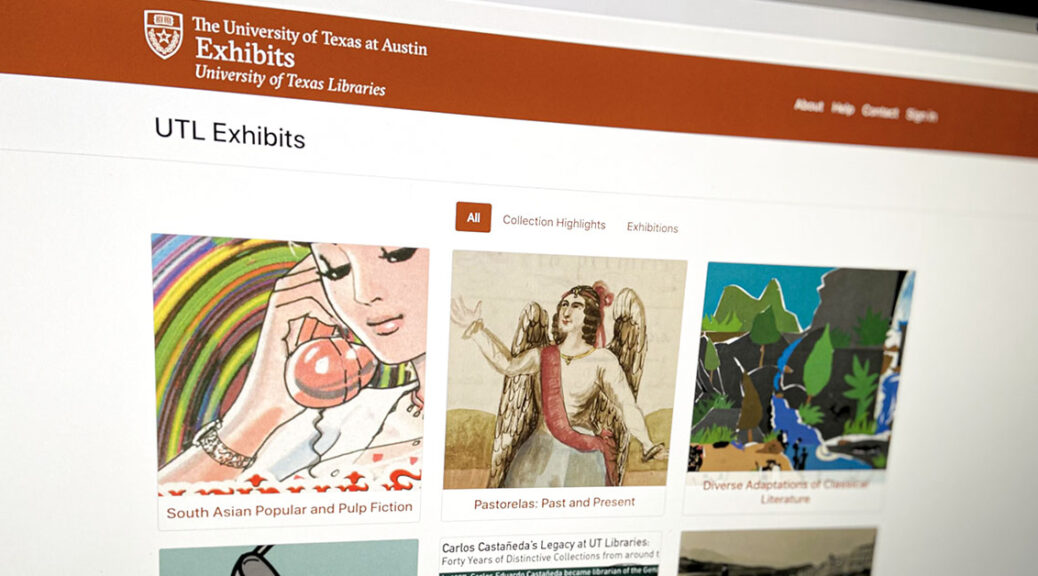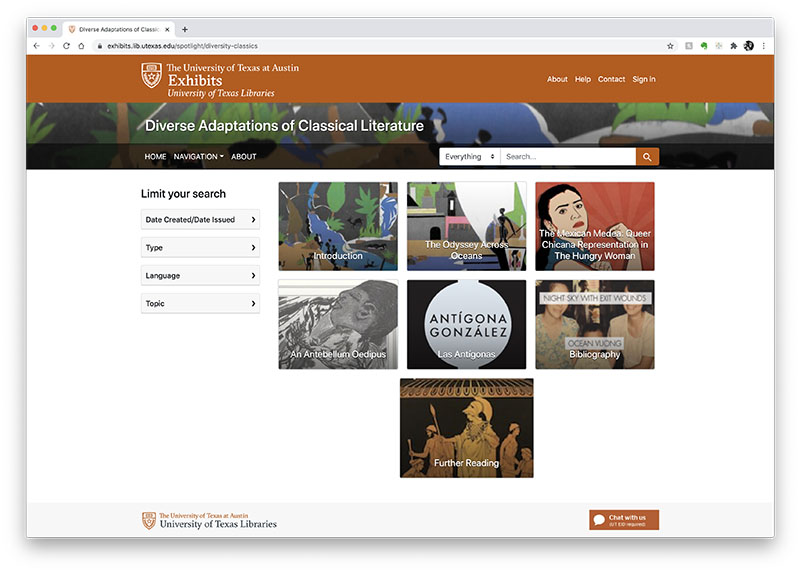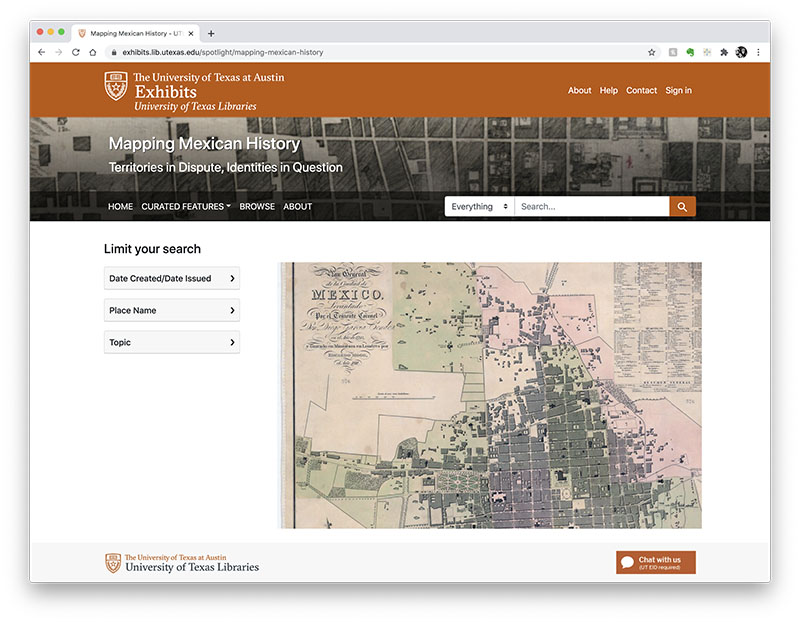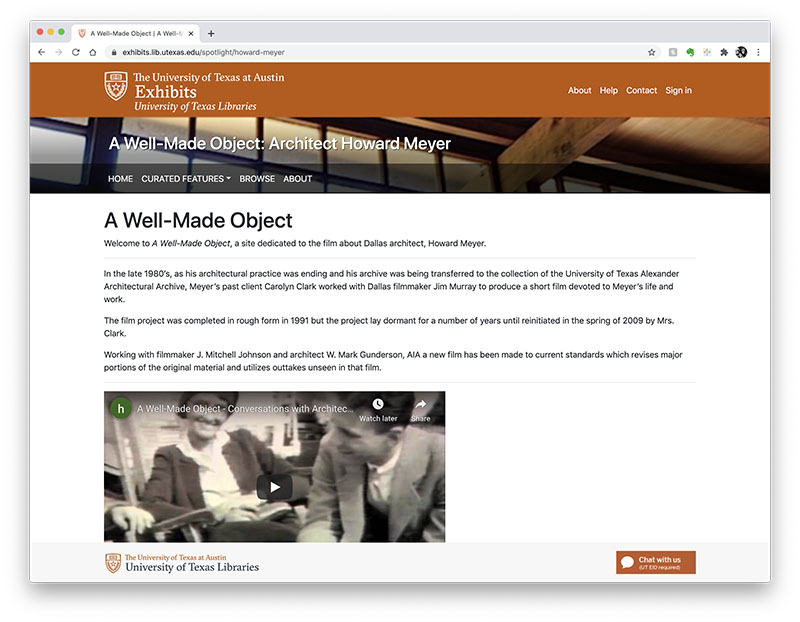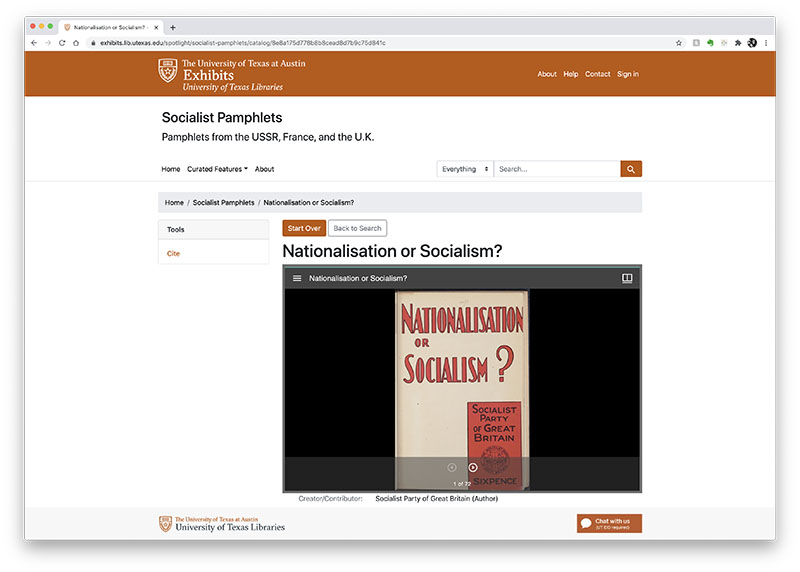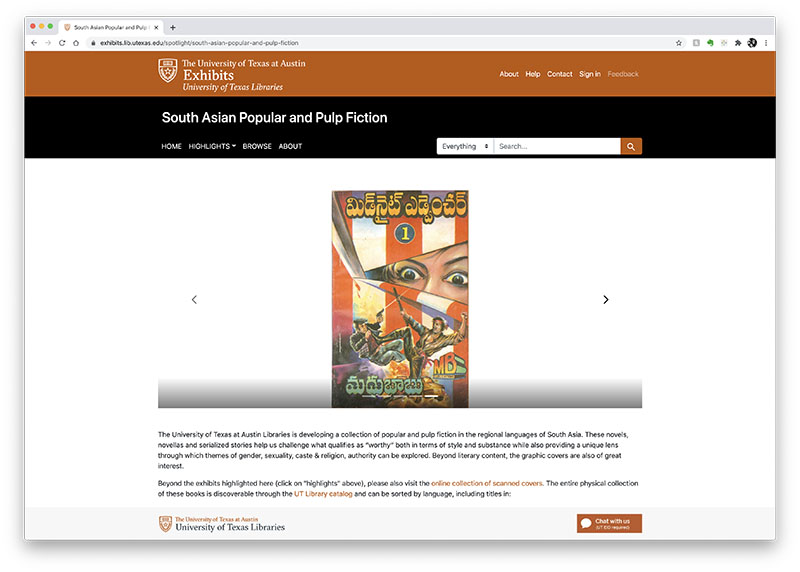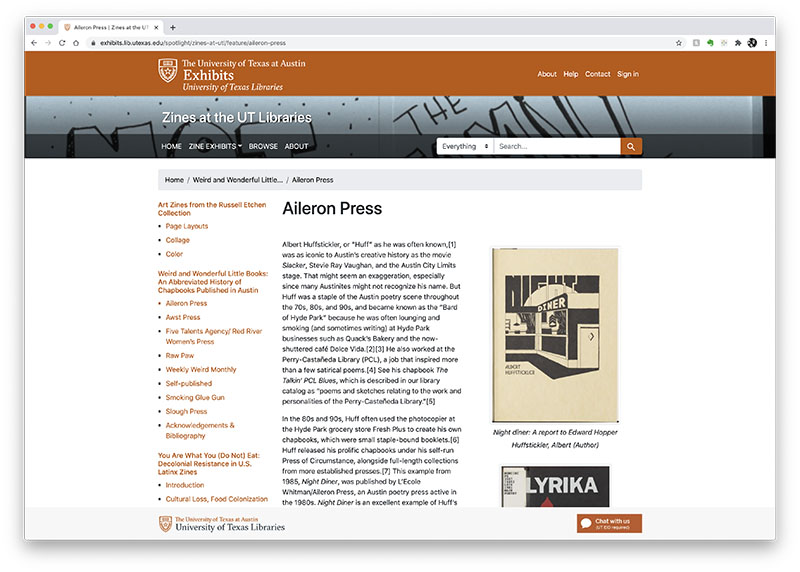The University of Texas Libraries have launched a new online platform that will provide staff with the opportunity to curate custom digital exhibits from content available through various existing digital repositories.
The Libraries’ Digital Exhibits platform was built using the open source software Spotlight, developed by Stanford University, that enables librarians, curators and content experts to easily build dynamic websites that highlight collections and objects from one of the Libraries’ digital repositories – like Texas ScholarWorks, Libraries’ digital asset management system (DAMS), Latin American Digital Initiatives (LADI), The Archive of the Indigenous Languages of Latin America (AILLA) and the Texas Data Repository – from independently uploaded items, or from a combination of the two.
The Libraries have been developing online exhibit content for over 20 years, but lacked a comprehensive plan for sustainment. The complementary nature of Spotlight – which is a plugin for Blacklight software that is used for other Libraries’ online toolsets like the Collections Portal and the GeoData Portal – provides the opportunity to develop a more cohesive strategy for enhancing the lifespan and value of digital exhibit work hosted by the Libraries.
“One of the things that we really valued from our original efforts at creating online exhibits were the varied approaches each curator took to highlighting their content,” says Allyssa Guzman, project lead and Digital Scholarship Librarian for the Libraries. “We wanted to maintain that flexibility in framing content and purpose of the exhibits moving forward.”
After a website redesign in 2017, Libraries developers settled on an interim solution for creating small-scale curated digital collections using Omeka, a free, open-source content management system for online digital collections. The implementation of Omeka allowed the Libraries to both reformat and enhance existing digital collections and build new digital exhibits that included underlying metadata and contextual information that would made identification and discovery much more robust.
The initial phase of the Digital Exhibits platform involved the migration of existing Omeka-developed content, as well as some digital content from the Benson Latin American Collection into Spotlight, and planning for the reformatting of content from legacy efforts onto the new platform, which in some cases will involve the migration of digital materials into the Libraries’ DAMS.
Curating digital exhibits from the extensive distinctive collections at the University of Texas Libraries serves purposes with benefits in excess of what can be derived from in-person physical exhibits. Like traditional exhibits, these digital collections will allow for supplementary context from experts in relevant fields of study and raise awareness of the rich and diverse holdings of The University of Texas at Austin. Additionally, the digital facsimiles will be more broadly accessible and remain persistent with the lifespan of the platform, and will allow for the augmentation of scholarship relevant to the digital collections.
The malleability of the platform allows for content to be presented with degrees of discernment. Collections Highlights will allow for small-scale samplings and introductions to different aspects of collections, and Exhibitions will provide an opportunity for curators to plumb the depths of primary sources.
Staff are also exploring the use of the Digital Exhibits as an enrichment tool for classroom learning. Albert Palacios, Digital Scholarship Coordinator at the Benson Latin American Collection and one of the project managers, has previously used special collections and exhibit development as a way of engaging students in archives, and the Digital Exhibits platform will allow for further experimentation with this method.
“The Exhibits portal empowers us to easily curate teaching collections for class assignments and semester projects,” explains Palacios. “Unlike our previous exhibition platform, we will also be able to incorporate digital scholarship projects, such as interactive maps, social network visualizations, and dynamic timelines, into our exhibitions.”
Already, plans are in the works to expand the functionality of Digital Exhibitions. The platform is already configured for Spanish translation, and work is underway to implement Portuguese translation, as well, both of which are universally-beneficial, but are fundamental for application to the collections at the Benson Latin American Collection. Staff are also working on developments to support streaming media, geographic information system data and discoverability improvements.
“Spotlight will continue to be developed by its creators and other users, and holds strong potential for being an elegant, robust platform for our short- and long-term exhibition plans,” says Jenifer Flaxbart, Libraries’ Assistant Director of Research Support and Digital Initiatives. “It will provide a means for a broad range of users to engage with our collections in support of research, instruction and intellectual curiosity.”

